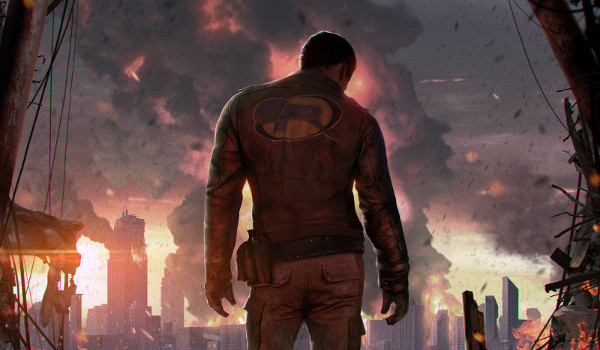Despite the fact that superheroes have taken over both film and television, they are still only just starting to take hold in literature. Superhero novels are a small, but growing genre, and Tony Cooper‘s Powerless is an enjoyable example that shows that yes, superheroes do work in a non-visual medium.
Far from the classic origin tale, Powerless is a dark tale where superheroes face as much mental trauma as physical. The story centers on Martin, a former hero who lives a quiet life as a night security guard, avoiding as much human interaction as possible. His quiet life is brought crashing down around him when one of his former teammates is brutally murdered, leaving Martin to find the culprit.
The main story alternates with flashbacks to 20 years prior, when Martin was a member of the premiere superhero team The Pulse. Vincent, the present murder victim, is killed due to his memoirs (not a spoiler, I promise), which helps the two stories fit together. The flashbacks also flesh out Martin’s character and his relationships with the other members of The Pulse, who are the main suspects.
One of my favourite characters in the book was the villain The Pulse is going up against in the past: The Controller. He is a strong telepath with the ability to control large crowds, causing riots and all other kinds of terrible things. Think Kilgrave with even less self-control. Cooper succeeds in building The Controller into a truly horrifying character. Also, due to the twin storylines, we get to see the long-term affects of The Controller’s attacks on not only The Pulse, but the city as a whole. How do you keep people safe from telepaths? An intriguing question.
Cooper manages to come up with some other unique powers, such as the leader of The Pulse (also, confusingly, called The Pulse) who uses blue pulse bubbles as a means of attacking, defending, and even flying. Another member of the team manipulates emotions; at first I thought this was a rather useless power for a superhero, but to his credit, Cooper uses the power nicely.
Cooper’s other talent lays in compelling action. While the fights are few, they are memorable and Cooper paints his scenes excellently. One scene in particular, a gruesome encounter between The Pulse and a group of powered drug dealers, was especially memorable for the way it builds tension and suspense.
While the plot builds nicely, it does stall a bit at several points. The section just before the climax especially dragged a bit for me, mainly because Cooper uses it to do a bit more world-building to set up the next novel instead of moving to the final confrontation. Fortunately, he manages to return to form by the end, with a few surprises still left.
My other main criticism is that the narration switches from first-person to third-person rather haphazardly. At first, I thought that the switches were to hint that the flashbacks were actually excerpts from Vincent’s memoirs, but later realised that both narrative voices are used in both timelines. It’s unclear what the reasoning was for this, but it doesn’t effect the reading experience too much.
With its dark tone and realistic look into the long-term effects of being a superhero, Powerless is certainly a worthwhile read. I’m eager to see what Cooper has in store for these characters in both prose and comic form!
You can find out more about Tony Cooper and Powerless on his website HungryBlackBird.com, where you can also find links to purchase Powerless in paperback or e-book.


